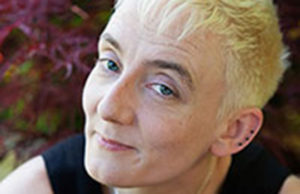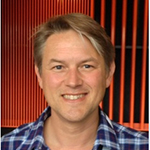
Some people are born into the world to enrich it. To give more than they could ever take. To bring to others a rare glimpse into a future we could all help achieve if we had the wit, resolve, humility, compassion, and the love, which Rosamund brought to everything she did and everyone she touched.
Such a beautiful soul carried with it a burden. Rosamund was made of such depths of compassion for others, coupled with a fierce will to do better—to be better—and to help others see the path that leads us all to care more for others than we do ourselves. It’s a double edged sword in so many ways, as the counter to such a depth of passion was the burden of huge self-doubt, the worry that you’re not being listened to, that you’re not making a difference, and a constant questioning of your own worth.
Rosamund wrestled with her own demons, living well with a “hidden disease,” and she did live well with it. Type 1 diabetes was not only her condition, it was her passion. Her depression was by far the more difficult condition to live with. Rosamund was determined that we could do better in serving the needs of people living with illness. Her insights were born out of experience coupled with a superb and insightful mind, and an ability to really listen to and hear the pain and unspoken stories of others. Guided by her own journey with depression and her firsthand knowledge of living with a lifelong condition, she knew intuitively how to speak to, understand, and provide a source of comfort, warmth, joy, and respect to others who lived with illness.
Uniquely, Rosamund combined her diabetes and her PhD to become the first person to gain a doctorate through research into her own condition. She was a genuine polymath, although to be described by anything that has the word “math” in it will undoubtedly have her screaming profanities at me right now! Her interests, skills, and accomplishments covered so many areas: she was a skilled musician, photographer, historian, feminist, and linguist—once advising Tessa Richards on the appropriate greeting to use when speaking to a Latvian—not to forget her recent excursions into amateur taxidermy.
She also had a real interest in embedding “tech” into the human body, quantifying the self, like her experiments with implanting magnets under her skin—surprising given how she most definitely didn’t want an insulin pump attached to her.
Wherever she went she made an impression—you didn’t forget meeting Rosamund—and if you were lucky enough to catch her attention and she made a friend of you, you were indeed truly blessed.
Unsurprisingly, the thoughts and comments of her circle of friends and professional colleagues run along similar lines:
“Engaging, interesting, and insightful; generous with her experiences but also feisty and challenging—I thought this was a fabulous combination!” Sally Crowe, who Rosamund researched and published with
“We discussed and developed ideas together, sometimes agreeing, sometimes not. She often likened our approach to being ‘good cop, bad cop.’ I as the bad cop took a line, and she as the good one found a way to work with editors to make it happen.” Tessa Richards, senior editor/patient partnership, The BMJ
“When I first met Rosamund at a patient involvement meeting at Oxford Medical School, I remember thinking, ‘Wow, she is really making things shift here, she is so articulate and powerful in her approach! I want to be like her!’ A few years later, we ended up at the same event, chose to sit together with another patient leader, and took great delight in being the self-confessed naughty table—challenging the room and [being] positively disrupting! Her care and support for us as fellow patient leaders was second to none, while she was in such suffering herself. Everything she did had a positive impact that won’t be forgotten.” Anya de longh
“Rosamund filled, brilliantly, an exquisitely important role in The BMJ‘s pioneering patient partnership. I’ve often said that the type 1 PWD is the archetypical engaged patient: s/he can’t survive without embodying patient involvement. Rosamund’s self-awareness, and her knowledge of both her disease and our cultural context, let her express the role of the patient in health and in the system with a keener eye and finer nuance than anyone else I know.” e-Patient Dave (aka Dave deBronkart)
As for her legacy, Rosamund can rest easy; her family and friends can take comfort in knowing that her work has had, and will continue to have, a lasting impact. She has inspired countless others to do better, to be better, and to think more deeply about how we can all make the world a little bit of a better place.
Rosamund, you made me look more closely and think more deeply. For that, for your friendship, and for you, I will always be grateful.
 Paul Buchanan is a patient with type 1 diabetes. He runs Team Blood Glucose. He is part of The BMJ‘s patient panel.
Paul Buchanan is a patient with type 1 diabetes. He runs Team Blood Glucose. He is part of The BMJ‘s patient panel.
Competing interests: None declared.
